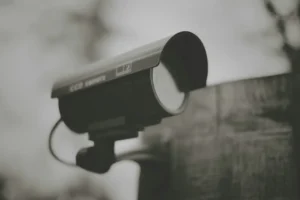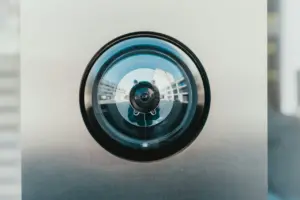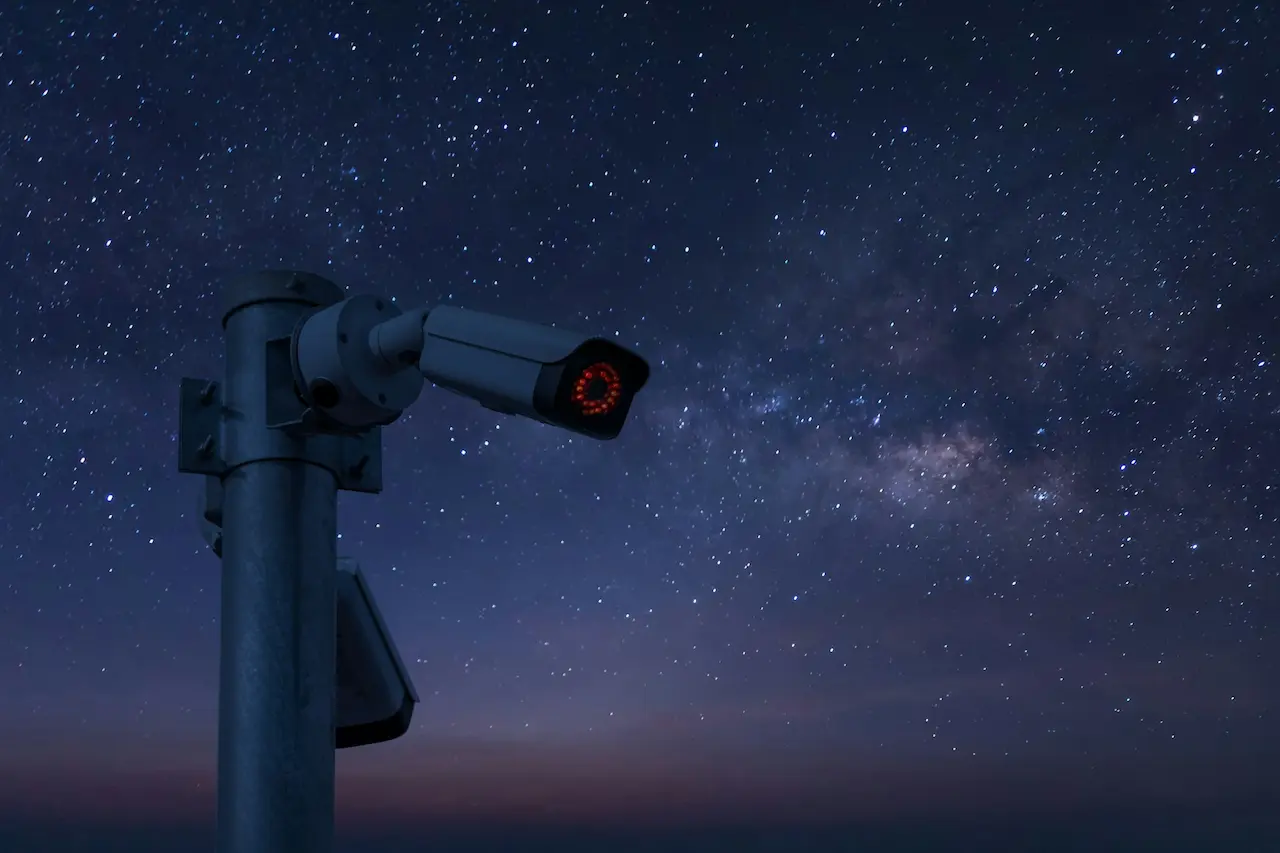Security Camera Installation Melbourne Victoria
DUKE Electrical Group are experts in electrical, audiovisual, security and automation. We have hand-picked some of the best technicians in Victoria to deliver only the best to our customers.
The DUKE Electrical Group team provide a highly professional and unique experience for our clientele.
Our team have worked around the globe on many award-winning projects and on some of Australia’s best homes. We have a wealth of knowledge in the high-end space and have been a key player in delivering custom solutions in both residential and commercial.
DUKE is a culmination of 27 years industry experience across various companies and roles with a strong focus on good company culture and business practices!
Table of Contents
ToggleSurveillance System and CCTV Installers
Expert Consulting, Design & Installation Services
Here is a list of some of the security services that we provide around Victoria and other areas in Australia.
- Consulting for Home, Business, and Government: We help customers design small, medium, and large video surveillance systems tailored to your specific needs.
- New System Design & Installation: We take the time to understand our customers requirements to design the best system for them.
- Existing System Troubleshooting & Upgrading: If you have an existing security camera system that is not working, needs repair, or requires upgrading, we can assist with this.
- View Your Security Cameras Remotely: We are specialised in systems with the best remote monitoring access, ensuring you can keep an eye on your property from anywhere.
- Commercial Grade / High-Quality Equipment: We do not use cheap, unreliable equipment. We only install equipment that we are confident putting our name and warranty behind, ensuring that your system works when you need it most.
- Long Term Technical Support & Customer Service You Can Trust!: Our customer reviews and our excellent reputation speak for themselves.

Easy to Use Security Camera Systems
Hybrid 4K Security Camera DVR
Our cameras are great for home, business, and government installations. They can be used with existing analog CCTV cameras, as well as the latest 1080p, 4 megapixel, and 4K security cameras.
View Your Security Cameras Remotely
- iPhone App: View Security Cameras from iPhone App
- Android App: View Security Cameras from Android App
- Mac Software: View Security Cameras from Mac Software
- Windows Software: View Security Cameras from Windows Software
Our systems support remote viewing from iPhone, Android, Mac, and Windows. Keep an eye on your home or business when you are not there. Remote access setup and technical support after installation are included at no additional charge.
4K Video Surveillance
4K Bullet IP Camera
We use the latest technology and rigorously test all the equipment we sell. Here are some of the latest products and services that we offer:
- 4K Security Camera Systems: Ultra high definition systems are ideal for home, business, and government installations.
- Live Video Monitor Display Systems: Retail locations, restaurants, and department stores typically want to let their customers know that video surveillance is being used by displaying a public live video feed of their cameras.
- Hybrid HD Security Cameras: These are a great choice for customers with an existing analog CCTV system. These cameras can run in CVBS mode for older CCTV DVRs and can be easily switched to 1080p HD mode when the customer upgrades their DVR.
- Hybrid Security Camera DVRs: Our 4K DVRs work with BNC and IP security cameras in all resolutions, from D1, 960H, 720p / 1 mp, 1080p / 2mp, 4mp, 5mp, to 8mp / 4K. Our DVRs are great for new system installations or as replacement DVRs for customers still using older analog CCTV cameras.
- LPR Camera Systems: We have installed license plate capture systems for HOAs, parking lots, and government facilities.
- Live Streaming Camera Systems: We can assist churches, funeral homes, schools, and any other type of business or organisation with equipment to stream single or multiple cameras on YouTube, Facebook, Twitch, and Zoom.
These are just a few examples of the types of systems that DUKE Electrical Group can install across Melbourne and Victoria. We have been designing surveillance systems for customers for over 15 years.
Ratings & Reviews
DUKE Electrical Group is proud to have an outstanding reputation with our customers. Our commitment to quality and service is reflected in the reviews we receive.
Free Consultations & System Quotes
Security Camera System
DUKE Electrical Group can provide you with a custom quote with as many cameras as you need and a mix of any combination of camera models based on your project requirements.
Request a Quote
DUKE Electrical Group covers most of Victoria and all of Melbourne to provide CCTV security camera installation services in the following areas:
Victoria Suburbs Served:
- Balwyn
- Brighton
- Camberwell
- Canterbury
- Dandenong
- East Melbourne
- Frankston
- Kew
- Kooyong
- Malvern
- Melbourne
- Middle Park
- Mornington Peninsula
- Port Melbourne
- Sandringham
- South Yarra
- St Kilda
- Toorak
- West Melbourne
Plus many more..
Click here to request a CCTV installation estimate.

Comprehensive Alarm Solutions
Our certified security experts design and install burglar alarm systems tailored to your business needs. From basic door and window contacts to advanced systems for large commercial spaces, we provide the ideal solution to secure your business. Our services include:
- 24/7 Central Monitoring: Professional monitoring ensures continuous protection.
- Custom Installations: Our experts create bespoke systems that meet your specific security requirements.
- Advanced Technology: We use cutting-edge technology, including high-definition CCTV cameras and intelligent access control solutions, to keep your premises secure.
- Trusted Expertise: Our technicians are skilled in integrating security cameras, intercoms, and access control systems, ensuring top-notch installations.
Holistic Security Approach
Our security solutions go beyond alarm systems. We offer a holistic approach that includes system integration, robust structured cabling, and intuitive home automation. This comprehensive strategy ensures both your property and privacy are safeguarded.
Burglar Alarm Prowess
Our state-of-the-art burglar alarm systems are designed to stay ahead of potential threats. By choosing Duke Electrical Group, you enhance your security with vigilant deterrents that fortify your defences and prevent unauthorised access.
Interested in a Burglar Alarm Installation with No Long-Term Contracts?
Contact our security experts for more information about custom-tailored burglar alarm systems that meet your business’s security needs.
24/7 Monitoring Service for Commercial Properties
Our professional burglar alarm monitoring service offers unmatched expertise, speed, and dependability. Connecting your business to a U.L. certified central monitoring station staffed by highly trained personnel provides continuous emergency protection, 24 hours a day, 7 days a week. We offer flexible plans and rates for commercial burglar alarm monitoring, ensuring you receive immediate notifications and response in case of an emergency.

Benefits of Burglar Alarm Systems from Duke Electrical Group
IP-Based Burglar Alarm Systems
Our IP-based systems allow you to monitor your business from anywhere using your smartphone, tablet, or PC. Key features include:
- User-Friendly Interface: Access multiple sites through a simple interface.
- Easy Setup: Activate your system with a touch of a button or on a set schedule.
- Real-Time Monitoring: Watch live streaming, recorded video, and receive real-time notifications.
- False Alarm Management: Verify and deactivate alarms remotely to avoid unnecessary trips.
Complete System Integration
Duke Electrical Group specialises in integrating burglar alarm systems with existing security features like access control and video surveillance systems. We can also incorporate smart technology, such as lights and locks, to work seamlessly with your new alarm system. If you need an electrician in Brighton or across Melbourne to provide you with a secure plan to upgrade your home security system then call our team today.
Why Choose Duke Electrical Group?
Melbourne Expertise
Operating in the vibrant city of Melbourne, Duke Electrical Group understands the unique security challenges of urban environments. Our solutions are tailored to address the specific needs of Melbourne’s diverse commercial and residential landscapes. We are your local electrician in Melbourne to ensure your family and businesses are safe and secure.
Uncompromising Quality
Our reputation for excellence is built on superior installations, cutting-edge technology integration, and a commitment to exceeding customer expectations. Aligning with Duke Electrical Group means choosing top-tier security solutions that consistently surpass industry standards.
Command and Control
Take control of your security with our intuitive command and control systems. Enjoy real-time property monitoring, instant alerts, and easy access management systems. Our user-centric approach ensures you stay in command of your security infrastructure, making safeguarding your premises efficient and seamless.
Trusted Professionals
Our team of certified professionals is dedicated to your safety. Each expert at Duke Electrical Group brings skilful craftsmanship and a commitment to fortifying your defences, providing you with unparalleled peace of mind.
Conclusion
Duke Electrical Group offers comprehensive security solutions that protect your business from burglaries and other threats. With advanced technology, expert installations, and continuous monitoring, we ensure your premises are secure. Contact us today to learn more about our custom-tailored alarm systems and monitoring services designed to meet your specific needs.
